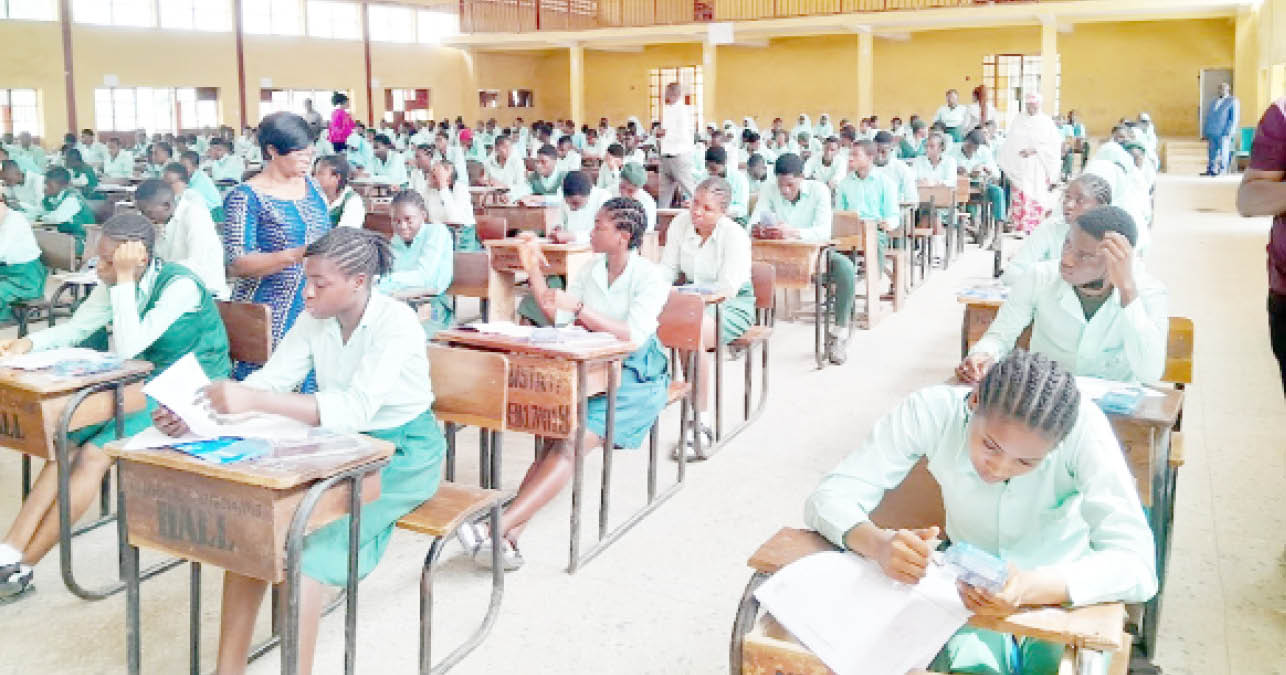In recent times, there has been worry over poor learning outcomes in basic education despite huge interventions by the federal government and other development partners.
While some blame the poor learning on recruitment of unqualified teachers by some state governments, lack of regular professional training programmes for teachers, low remuneration, others say it is the outdated curriculum.
A report by the World Bank shows that Nigeria is faced with a staggering learning crisis, with about 70 per cent of children in schools who cannot read and write or perform basic numeracy tasks by age 10.
Also, the Multiple Indicator Cluster Survey (MICS) 2021 showed that three out of four children in Nigeria could not read with meaning or solve simple mathematics problems, thus worsening the learning crisis in the country.
Lagos enacts law to prevent talent poaching
Over 4, 000 registered for Kano mass wedding
The concern on learning crisis becomes more worrisome owing to the fact that Nigeria is ranked among the three countries that account for the largest number of out-of-school-children in the world, while the gender inequity remains a major challenge at secondary school level, as only one in four girls from poor rural families in the country complete junior secondary school.
While the federal government continues to embrace policies and actions to address the challenges in the education sector, some states in Nigeria are also not left behind as many are partnering the federal government, development partners and civil societies to bring an end to the quagmire, which many stakeholders have described as national embarrassment.
UNICEF’s Education Specialist, Yetunde Oluwatosin, during a media dialogue on Foundational Literacy and Numeracy (FLN) in Benin City, Edo State, facilitated by UNICEF, in collaboration with the Lagos State Directorate of National Orientation Agency (NOA), said only 73 per cent of Nigerian youths were literate and that only seven per cent had ICT skills needed for working and living in a digital economy.
Oluwatosin said as part of moves to address the situation, UNICEF was able to reach over 1.8 million children with learning materials between 2018 and 2022, noting that efforts were on top gear to tackle the challenge headlong.
She said, “We aim to reach another 4.8 million by 2027, primarily in the North, and to ensure Teaching and Learning Materials (TLMs) are curriculum-aligned, high quality and inclusive.”
Oluwatosin further said UNICEF was leveraging its ongoing engagement of community-based organisations such a high-level women’s advocates, mothers’ associations, traditional and religious leaders and youths, including the He-For-She and Girls-for-Girls to amplify national messages at the local level towards addressing the challenge.
UNICEF’s Communication Officer, Blessing Ejiofor, said all hands must be on deck to ensure that children attended school, learnt and became useful to themselves and society when they grew up.
She appealed to the media to mainstream the issues around the learning crisis to prompt the government to address the problem.
To tackle these challenges in Edo State, the state government, through its accelerator programme, came up with a concept known as Edo Best, and according to the government, it is yielding results.
The Executive Chairperson of the Edo State Universal Basic Education Board, Mrs Eyitayo Salami, said the current administration in the state remained committed to provide quality education to children.
Mrs Salami said: “The Edo Best is yielding results as school enrolment is on the increase. The state government is really determined to ensure that children go to school, learn and become useful in the future.”
According to her, the strategies and activities put in place to address core foundational learning issues in the state include scripted lesson plans, which involve technical analysis of learning materials for early-grade reading and recommendations and resources for areas of improvement to build frameworks, manuals, guidelines and processes for developing and deploying thee scripted lesson plans.
She noted that Learning and Development Officers (LDOs) provided regular coaching, support and feedback to teachers through a framework for assessing and benchmarking teachers’ performance so as to institutionalise performance-based evaluation and provide tailored capacity-building support for in-service teacher professional development.
She added that regular visits to schools by Quality Assurance officers (QAOs) helped in ensuring that instructional materials were available and used appropriately in the classrooms, while the state also prioritised printing and procuring necessary textbooks; especially in lower grades to offer foundational literacy programmes.
Edo BEST, according to her, has enhanced an increase in the amount of teaching in the schools leading to improved learning up to seven per cent larger learning gains in numeracy and six per cent larger learning gains in literacy in Edo BEST schools compared with non-Edo BEST schools.
Speaking on the outcome, Mrs Salami said the state recorded increased enrollment in schools.
She said, “Since the inception of Edo BEST there has been a tremendous increase in the enrolment of children into ECCDE, which has culminated in the overall enrollment of children into junior and senior primary schools, thereby reducing the number of out-of-school children.”
She further said the ECCDE 1 and 2 currently provided most enrolment records for ECCDE 3 and subsequently Primary 1, and that, “This way we will have more pupils out of the streets and into our classrooms.”
The Principal of Samuel Ogbemudia Girls College, Benin City, Edo State, Josephine Igbinedu, said various mechanisms were put in place to tackle out-of-school challenges and to ensure that those that attended school stayed and learned.
Igbinedu said the state government provided an enabling learning environment and that the teachers were monitored to ensure that they taught the students adequately.
She further said the School-Based Management Committee (SBMC) was also collaborating with school managements to ensure efficiency while Parents-Teacher Associations (PTAs) also served as an avenue to evaluate performance of the children and address any matter arising.
Some of the students in the junior class in the school who spoke to Daily Trust, Freda Ogierhiakhi, Victoria Adams and Jane Onyilamu, agreed that their teachers taught them through the use of tablets and that they were gaining more knowledge and improving in their study.
Meanwhile, UNICEF urged the Edo State Government to scale up and ensure sustainability of the Edo Best programme.




